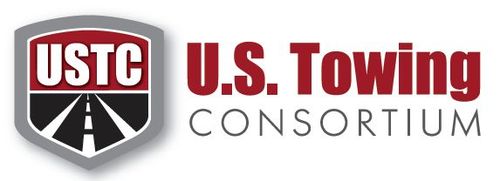Truck-Training related topics:OSHA
PROPOSED NEW OSHA STANDARDS FOR TOWING INDUSTRY...
( 1 ) Vehicle - Training related topics:
(A) Operating instructions, warnings, and precautions for the types of truck the operator will be authorized to operate;
(B) Differences between the truck and the automobile;
(C) Truck controls and instrumentation: where they are located, what they do, and how they work;
(D) Engine or motor operation;
(E) Steering and maneuvering;
(F) Visibility (including restrictions due to loading);
(G) Fork, Arm and Lift attachment adaptation, operation, and use limitations;
(H) Vehicle capacity;
(I) Vehicle stability;
(J) Any vehicle inspection and maintenance that the operator will be required to perform;
(K) Refueling and/or charging and recharging of batteries
(L) Operating limitations;
(M) Any other operating instructions, warnings, or precautions listed in the operator's manual for the types of vehicle that the employee is being trained to operate.
( 2 ) Workplace - Training related topics:
(A) Surface conditions where the vehicle will be operated;
(B) Composition of loads to be carried and load stability;
(C) Load manipulation, loading and unloading;
(D) Pedestrian traffic in areas where the vehicle will be operated;
(E) Narrow aisles and other restricted places where the vehicle will be operated;
(F) Hazardous locations where the vehicle will be operated;
(G) Ramps and other sloped surfaces that could affect the vehicle's stability;
(H) Closed environments and other areas where insufficient ventilation or poor vehicle maintenance could cause a build-up of carbon monoxide or diesel exhaust;
(I) Other unique or potentially hazardous conditions in the workplace that could affect safe operation.
(d) Refresher training and evaluation. Refresher training, including an evaluation of the effectiveness of that training, shall be conducted as required to ensure that the operator has the knowledge and skills needed to operate the powered tow truck safely.
(1) Refresher training in relevant topics shall be provided to the operator when:
(A) The operator has been observed to operate the vehicle in an unsafe manner;
(B) The operator has been involved in an accident or near-miss incident;
(C) The operator has received an evaluation that reveals that the operator is not operating the truck safely.
(D) The operator is assigned to drive a different type of truck; or
(E) A condition in the workplace changes in a manner that could affect safe operation of the tow truck.
(2) An evaluation of each powered industrial tow truck operator's performance shall be conducted at least once every year.
( 3 ) Certification
The employer shall certify that each operator has been trained and evaluated as required by this section. The certification shall include the name of the operator, the date of the training, the date of the evaluation, and the identity of the person(s) performing the training or evaluation.
Performance & Professionalism Training
- Truck and equipment capabilities
- Attachments of heavy vehicles
- Rigging
- Vehicle Placement
- Recovery formulas
- Preparation for Towing
- Weather Conditions
- Knowledge of blood-bourne pathogens
- Customer relations on the scene
- Fire potential driver should be alert to (vs. fire department responsibilities)
- Company dispatching communications
- Company team communications on the scene
- Proper maintenance of snatchblocks, etc.
- Air cushion recovery (decision making)
- Hydraulic recovery (decision making)
- Scene assessment (pre-planning)
- Unloading (upright vs. on the ground)
- HAZMAT awareness
- EPA awareness (spills, water source, clean up)
- Knowledge of the drug and alcohol regulations
- Command Center communications
- Incident Management—who’s in charge (when)
- Paperwork
o Pricing
o Pictures
o Preparing invoices
o Documentation
